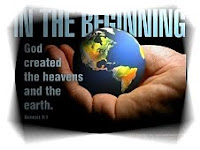 When I was a teen, I spent a number of Saturday evenings watching campy Frankenstein movies on TV. Strangely enough, I’d never actually read Mary Shelley’s classic book. I can now report that I’ve corrected that oversight and, in addition to having seen many (but certainly not all) of the Frankenstein movies, I've read the book that spawned the films. As I read Frankenstein, I was struck by some parallels and contrasts I saw between that story and the Genesis account of creation. As I sat down to write this post, I was also struck by a connection I perceived between Frankenstein, Genesis and the Conflict Model of family relationships (also often specified as a model of parent-child relationships), as elucidated by Steven Pinker.
When I was a teen, I spent a number of Saturday evenings watching campy Frankenstein movies on TV. Strangely enough, I’d never actually read Mary Shelley’s classic book. I can now report that I’ve corrected that oversight and, in addition to having seen many (but certainly not all) of the Frankenstein movies, I've read the book that spawned the films. As I read Frankenstein, I was struck by some parallels and contrasts I saw between that story and the Genesis account of creation. As I sat down to write this post, I was also struck by a connection I perceived between Frankenstein, Genesis and the Conflict Model of family relationships (also often specified as a model of parent-child relationships), as elucidated by Steven Pinker.I’ll begin by considering Frankenstein and Genesis. Obviously, Victor Frankenstein, the fictitious creator, is analogous to God, and the monster, the created being is analogous to humankind. Another analog exists between the relative appeal of Frankenstein/God and the created beings. Frankenstein is brilliant and well-loved, and God, of course, is perfect and lacks nothing. In contrast, Adam, Eve and the monster are all flawed beings who unwittingly offend their creators. As the Genesis story goes, Adam and Eve offend their creator when they disobey him; up to that point, the threesome got along just swell. Unfortunately, Adam and Eve learned, after the fact, that the only way to retain their creator’s favor was to obey him without fail. Victor Frankenstein’s monster offends his maker the moment his eyes blink open. The poor sod never had a chance to win his creator’s favor – Frankenstein was repelled by his creation at the instant he gave it life, a revulsion that he nursed and carried with him for the rest of his life. Yet another analog exists between the responses of the creators to their creations: God banishes Adam and Eve from the Garden of Eden, cursing them to fend for themselves in a world that suddenly has been rendered harsh, and Frankenstein abandons the being he created to fend for himself in a strange world populated by people who treat him harshly.
 There are, of course, some points at which the similarities break down. For example, Frankenstein never felt any affection for his creation; from the moment the monster opened his eyes and drew breath, Frankenstein sought to destroy him. At several points in the story, the monster begs Frankenstein to make some provisions for him. Finally, he begs for a mate, so that he will not have to spend his entire life alone. Having learned from his brutal experiences that no human being will ever accept him, the monster seeks a companion like himself with whom he can spend his life (similarly, after Adam fails to find a suitable companion in the animal kingdom, God creates Eve to be his companion). Frankenstein breaks down and promises to provide a female companion for the creature. Shortly afterwards, partway through the completion of the task he finds deeply repulsive, he reneges on his promise and destroys the female creature. Consequently, the monster is doomed to live in isolation until the day he dies. In the Frankenstein story, creator and creature will never be reconciled. In contrast, the Genesis story holds that God and humankind can be reconciled, but only at tremendous costs. The humans have to offer repeated animal sacrifices to atone for their wrongdoing and/or appease God’s wrath. (Jumping ahead several centuries - God eventually takes the pressure off the humans and offers the ultimate perfect sacrifice to himself.)
There are, of course, some points at which the similarities break down. For example, Frankenstein never felt any affection for his creation; from the moment the monster opened his eyes and drew breath, Frankenstein sought to destroy him. At several points in the story, the monster begs Frankenstein to make some provisions for him. Finally, he begs for a mate, so that he will not have to spend his entire life alone. Having learned from his brutal experiences that no human being will ever accept him, the monster seeks a companion like himself with whom he can spend his life (similarly, after Adam fails to find a suitable companion in the animal kingdom, God creates Eve to be his companion). Frankenstein breaks down and promises to provide a female companion for the creature. Shortly afterwards, partway through the completion of the task he finds deeply repulsive, he reneges on his promise and destroys the female creature. Consequently, the monster is doomed to live in isolation until the day he dies. In the Frankenstein story, creator and creature will never be reconciled. In contrast, the Genesis story holds that God and humankind can be reconciled, but only at tremendous costs. The humans have to offer repeated animal sacrifices to atone for their wrongdoing and/or appease God’s wrath. (Jumping ahead several centuries - God eventually takes the pressure off the humans and offers the ultimate perfect sacrifice to himself.)If you google “Frankenstein as cautionary tale,” you’ll find some interesting applications of Shelley’s tale. Some say that humans are cautioned not to “play God” by delving too deeply into scientific inquiries. Others say that it cautions people against judging others on the basis of appearances. Still others say that it’s a cautionary tale against bad parenting. On this view, Victor Frankenstein is, to say the least, a dead-beat dad. This last caution brings me to my final point of discussion, the Conflict Model of family relationships. Steven Pinker has popularized this view in some of his books. One writer summarizes this view thus:
Pinker points out that since a parent shares 50% of his or her genes with each offspring, in evolutionary terms the investment in each should be equal (all other things being equal). But if I am one of those offspring, I share only 50% of my genes with each sibling, but 100% of my genes with myself, so it is in my best interest to suppress parental investment in my siblings and to promote parental investment in myself. Pinker hypothesizes that this may lead to a child’s behavior that, indirectly, helps prevent or delay the parents having another child.
According to Pinker, this behavior is unconscious; it’s just something that’s built into animals’ genetic makeup. Thus, parents and children, and siblings, are always in conflict over the distribution of finite family resources. That being the case, they don’t always share the same goals. In fact, their goals often conflict.
 It’s intriguing to look at the Frankenstein and Genesis stories in light of this theory. Victor Frankenstein’s goal was to avoid, then later destroy, his creature. He pursued his goals of glory and scientific accomplishment without giving any thought to the responsibilities that his success in creating a new life, indeed, a new form of life - a species - would entail. When confronted with his responsibility, he fled from it. The creature’s interest, initially, was to get Frankenstein to care for him, or to at least make some minimal provision for his comfort. When Frankenstein failed to do even that much, the creature then shifted his goal toward revenge. It goes without saying that when both parties in a conflict are hell-bent on destroying each other, there is little to no possibility that the parties will live happily ever after. (Spoiler alert: Frankenstein does not have a happy ending). Similarly, the Genesis story tells us that God created human beings for his glory, but humans are inclined to pursue interests of their own devising. Assuming that the creator/creature relationship is analogous to the parent/child relationship (the process by which parents create children is one of nature's wonders), Pinker's Conflict Model fits both the Frankenstein and the Genesis stories. Frankenstein and his monster pursue obvious cross-purposes throughout Shelley's book. Similarly, God and humans aim at contradictory ends in Genesis: God wants humans to be obedient; humans want to be independent. I'll push the theory's application a step farther and note that Cain's murder of Abel (recorded in Genesis) is sibling rivalry writ large, a tendency that is often seen in nature when stronger offspring kill their weaker siblings. All of this is in keeping with a scientific model positing that living beings, even humans in close relationships genetically and affectionately, act in their own self-interests far more often than not.
It’s intriguing to look at the Frankenstein and Genesis stories in light of this theory. Victor Frankenstein’s goal was to avoid, then later destroy, his creature. He pursued his goals of glory and scientific accomplishment without giving any thought to the responsibilities that his success in creating a new life, indeed, a new form of life - a species - would entail. When confronted with his responsibility, he fled from it. The creature’s interest, initially, was to get Frankenstein to care for him, or to at least make some minimal provision for his comfort. When Frankenstein failed to do even that much, the creature then shifted his goal toward revenge. It goes without saying that when both parties in a conflict are hell-bent on destroying each other, there is little to no possibility that the parties will live happily ever after. (Spoiler alert: Frankenstein does not have a happy ending). Similarly, the Genesis story tells us that God created human beings for his glory, but humans are inclined to pursue interests of their own devising. Assuming that the creator/creature relationship is analogous to the parent/child relationship (the process by which parents create children is one of nature's wonders), Pinker's Conflict Model fits both the Frankenstein and the Genesis stories. Frankenstein and his monster pursue obvious cross-purposes throughout Shelley's book. Similarly, God and humans aim at contradictory ends in Genesis: God wants humans to be obedient; humans want to be independent. I'll push the theory's application a step farther and note that Cain's murder of Abel (recorded in Genesis) is sibling rivalry writ large, a tendency that is often seen in nature when stronger offspring kill their weaker siblings. All of this is in keeping with a scientific model positing that living beings, even humans in close relationships genetically and affectionately, act in their own self-interests far more often than not.Genesis, one of the best-known pieces of religious literature in the world, has been around for millennia. Frankenstein, one of the best-known pieces of English literature in the world, has been around for a couple of centuries (it was published in 1818). The Conflict Model of family relationships is the literary and theoretical newcomer; its existence can be measured in decades. I find it fascinating that a contemporary scientific theory can be used to examine the interpersonal complexities portrayed in two pieces of literature rooted in vastly different cultures. I also find it interesting that longstanding literary insights into human nature comport well with contemporary scientific theories. Such reciprocity speaks well for the utility of both science and literature as methods of exploring our humanity and our world.

No comments:
Post a Comment